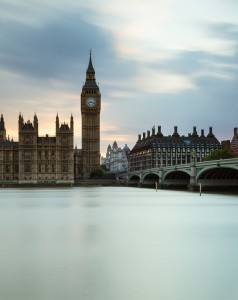There’s a flavour of ‘What have the Romans ever done for us?’ in the Corbyn-led debate over the Blairite legacy. As someone who campaigned enthusiastically for Labour in 1997 and now feels a somewhat detached member of the party, I think I can articulate why -despite the many achievements of the Blair and Brown governments – there might be a lingering discontent with that legacy. Leaving the Iraq War out of this, for right or wrong a product of Tony Blair’s always just visible messianic tendencies, the problem is really the Blairite legacy’s impermanence. The two main manifestations of that impermanence are in the failure to reduce inequality, surely to begin rising again, and the ability of the Conservatives to roar back and dismantle the very achievements for which we should be celebrating the Blair-given years of power.
So there is a feeling that the achievement of power is not enough, if it comes without a clear vision of how the country is to be transformed from one which while comfortable for the comfortably-off is increasingly unpleasant for those who are struggling. Electoral office may not seem quite so pressing to ordinary members and supporters of the party as it does to those whose paycheques and profiles rise and fall with its electoral fortunes.
As to the attacks on Corbyn himself, it is increasingly difficult to separate the nonsensical rhetoric of his Labour party opponents from that of our common opponents in the Tories. The characterisation of him as ‘hard-left’ because he advocates some rebalancing of the private and public sectors, a more positive vision of the value of collective investment and a shift in the tax burden from those that consume and invest to those more likely to hoard and multiply their wealth, is ahistorical and self-defeating. Far from being the authoritarian the term implies, he has rightly advocated the real dispersal of power to the regions of England.
The Labour Party elite need to take a sideways step. This leadership campaign is a symptom of an organisation that has become too driven by the interests of those who serve it, rather than those it serves. For those of the public at large who are struggling in a competitive landscape with minimal collective support, it matters not whose name is on the party leaflet or platform, but whether the social and economic infrastructure presents them with the choices and tools to make the best of their lives. To frame this within a left-right corridor makes little sense to them, and shouldn’t to us either – it simply restricts our thinking. Calibration of electoral offers according to this spectrum – so that if Ed Miliband was to the right of David Cameron and he lost, and we think Jeremy Corbyn is to the left of Ed Miliband then he will lose more badly… seems analytically bereft.
Whether Jeremy Corbyn has the personal qualities to lead a political party, I don’t know, but then the other candidates are also largely untested. If it is any measure, his campaigning industry and willingness to say what he believes in has so far exceeded theirs. Whether he wins or not, I hope this campaign marks a point at which the party thinks rather more deeply about where it sees Britain going beyond the next election campaign.
